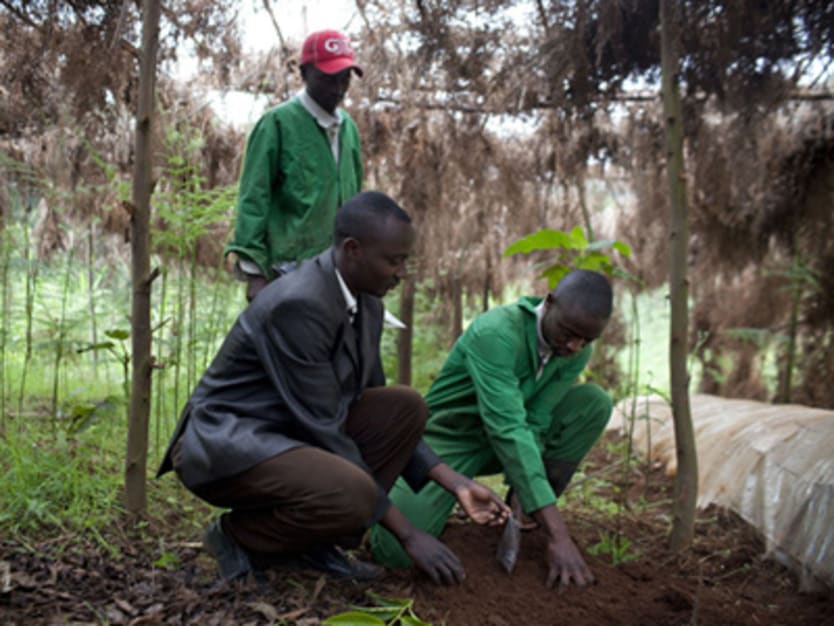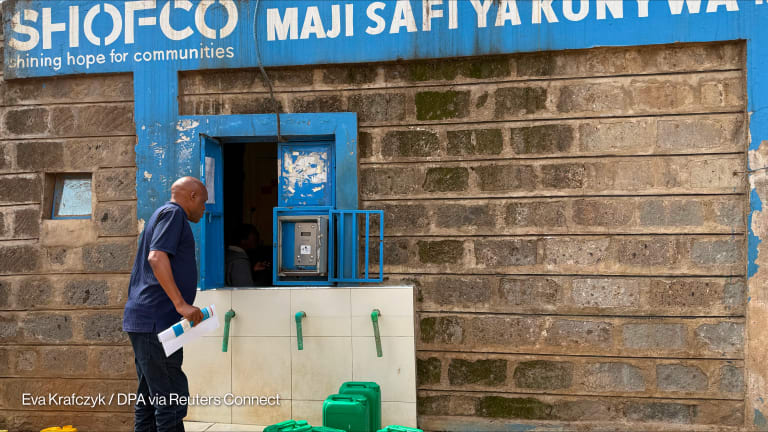
The terms ”country ownership” and ”local ownership” get bandied about quite a bit in the world of international development.
With the launch of the USAID Forward reform effort, the U.S. Agency for International Development has taken steps to ensure local governments, civil society and people are not just recipients and implementers of U.S.-funded development programs but the drivers behind them. This, after all, is the only way to ensure long-term, sustainable change. But while the agency has made progress in integrating local ownership into its work, there is still room for improvement.
Mercy Corps, an international NGO with hundreds of local partnerships around the world, recently conducted extensive interviews on local ownership approaches with 14 high-performing partners and local actors in Latin America, the Caucasus, West and Central Africa, the Middle East, East Asia and South Asia to come up with a report that lays out how USAID can improve its local ownership efforts.
Speaking recently at a joint Mercy Corps-InterAction event, the study’s author, Kari Diener, highlighted recommendations for USAID:
USAID should “build a strong foundation” by getting the “what” of local ownership right. It isn’t just about finding local implementers for programs and projects designed thousands of miles away in Washington, D.C., but rather building genuine, mutually beneficial partnerships with local actors.
In terms of the “how” of local ownership, the report urges the agency to make partnership mechanisms more accessible and understandable to local institutions. Current complex regulations often discourage or prevent local actors from partnering with USAID, or force those who do to spend scarce bandwidth just complying with a multitude of agency rules.
USAID should build new partnerships and rethink the “who” of local ownership by actively working to engage new and emerging actors such as social movements and cross-sectoral groups, rather than just the “usual suspects.” The agency should also engage international NGOs not simply as a “pass through” for funding but to help connect and facilitate locally-led development by using their own resources and expertise.
The study’s findings provoked lively and thoughtful conversation, and one main thread that emerged is how essential it is for local civil society to have a role in decision making. Civil society groups should not just be USAID implementers, but rather development actors in their own right.
It was noted that while the United States can deliver “stuff” to poor people around the globe, it cannot deliver what is most needed: power and accountability. Local people and local civil society need to have a real stake in and ultimately be responsible for their community’s own development. This is what local leadership needs to be about.
Civil society capacity building should also be seen as a separate goal from simply “running money through the pipes” of government systems, attendees said. Capacity building is not solely about providing funding.
Another idea that emerged is that it’s important to think about a whole-of-society approach for building local ownership. It isn’t enough to build the capacity of a few local organizations — efforts should be put into building vibrant local civil society platforms. There is also a need to help foster better enabling environments in places where space for civil society is restricted. However, while we should engage with new and emerging local actors, it was pointed out that we should keep in mind that the “usual suspects” do bring a lot to the table, including political accountability that may not always exist with others.
It’s a positive sign that local partners interviewed for the report wanted accountability standards to remain high, despite expressing problems with complex USAID regulations. This illustrates the strong importance they place on accountability.
One theme that was reiterated and drew broad agreement was that any discussion about U.S. foreign assistance takes place in the context of the current, dismal budget climate. Funding for foreign assistance is retreating from its high water mark and won’t be increasing any time soon, making it more essential than ever that the government and the aid community do the best we can with the resources we have. The work of the development community needs to be more effective, and improving local ownership efforts can play an important role in achieving this goal.
Local ownership is critically important in order to improve aid programs’ effectiveness and to give local people a voice and a stake in their own future. It is essential not to view local ownership solely as engagement between the U.S. government and foreign governments, but to encompass the whole of local civil society. USAID Forward is making progress in this direction, and the Mercy Corps study shines a valuable light on what gaps still remain and some steps the U.S. government and our community could take to more fully realize the goal of local ownership.
It’s not just aid groups that are going local — Devex is, too. Find out more about the first-ever Devex International Development Partnerships Forum and Career Fair in Nairobi, Kenya.
Search for articles
Most Read
- 1
- 2
- 3
- 4
- 5








